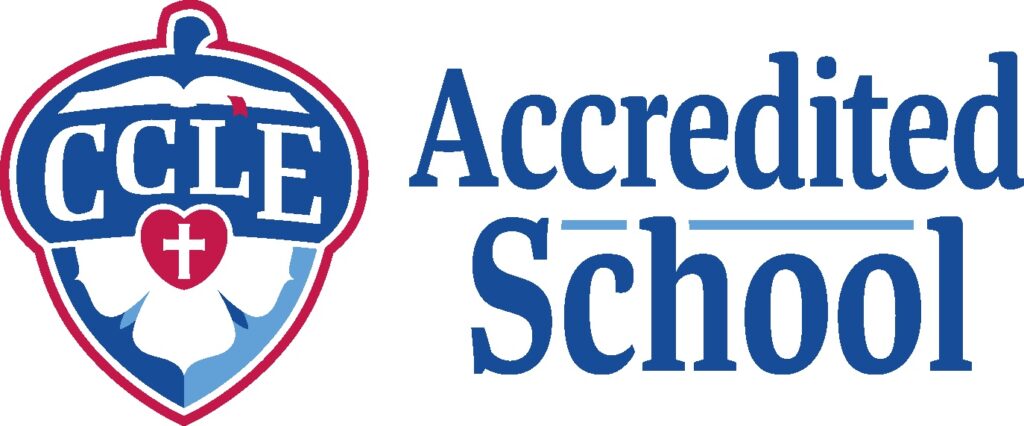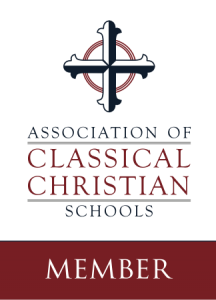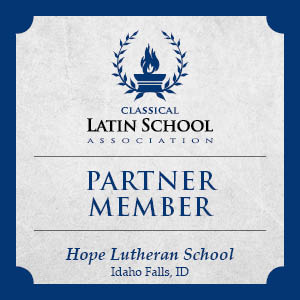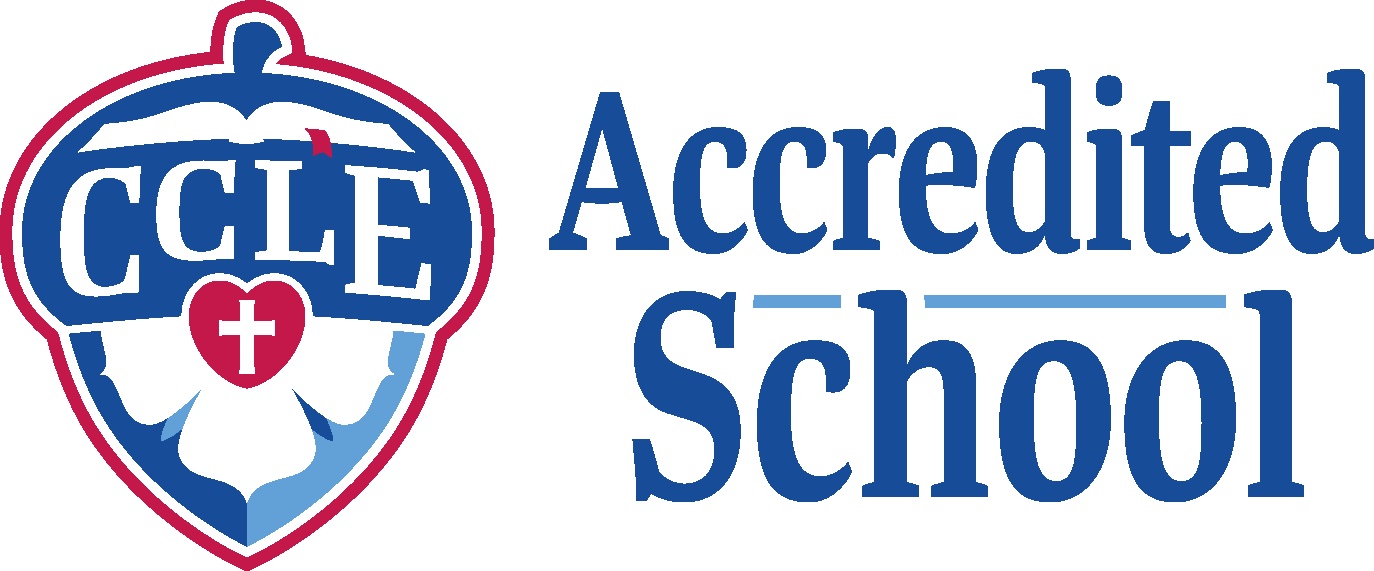Classical Academy



Hope Lutheran provides a Classical Christian Education to our Preschool through 8th grade students. Classical education is a time tested approach that teaches the student to understand the “how” of learning. If a student knows how to learn, they can excel in any field, subject, or situation.
Classical education is “free-thinking”. We are not afraid of different ideas or theories. The student is free to explore them and think critically about them. Indoctrination is excluded from the Classical educational process.
Classical education is “effective”. How and when students are taught is essential in this approach. Regardless of their learning style, children learn in three phases or stages (grammar, logic or dialectic, and rhetoric), known as verbal arts or the trivium.
- In the grammar stage, students find it easy and fun to memorize and enjoy choral recitations and chants; they are given opportunities to memorize all types of facts in math, geography, literature, English, religion, and Latin. These facts are the “grammar” or building blocks inherent in every subject.
- In the logic stage, students learn how the grammar they just learned interacts in a system. Students begin to analyze, critique, construct, and use the scientific method.
- In the rhetoric stage, students learn to speak accurately on a subject. They give reports and teach others about a subject. They are able to debate and critically analyze a subject.
Classical education is language-focused; learning is accomplished through words, written and spoken, rather than through images (pictures, videos, and television). Why is this important? Language-learning and image-learning require very different patterns of thought. Language requires the mind to work harder; in reading, the brain is forced to translate a symbol (words on the page) into a concept. Images, such as those on videos and television, allow the mind to be passive. In front of a video screen, the brain can relax; faced with the written page, the mind is required to roll its sleeves up and get back to work.
Humanities vs. Science
Classical education is built around a humanities core. The goal for elementary students is not to master science as that comes developmentally at the High School level. While being introduced to science, they will learn most importantly how to understand and approach it, not just mere facts. The study of the humanities leads to scientific reasoning. Science as we know it today used to be known as “Natural Philosophy” which led to the Scientific Revolution and beyond. Students would learn how to think about and appreciate nature, not merely observe it.
Multi-Grade Classrooms
At Hope, students in the 1st through 8th grades remain with the same teacher for more than one year. Multi-age classrooms are made up of a mix of abilities and ages. Students have the advantage of being able to learn at their own pace.
Benefits of Multi-Age Classrooms:
- Developmentally appropriate, child centered, continuous learning
- Integrated Curriculum
- Attention to the education of the whole child
In multi-age classrooms, all children, even the older children, are on their own continuum of learning. The curriculum is opened up for ALL the children. The older child is able to go as far as he or she is able to go just as the younger child is. Oftentimes in a same-grade classroom, some children who have accomplished the curriculum stagnate or get bored with learning things they already know. This does not happen in the multi-age program. Students are able to progress beyond the traditional curriculum limits because Hope Lutheran School is designed to teach each child at their own individual pace.
Children also benefit socially and emotionally. Older children have the opportunity to mentor younger children. This allows all the older children to gain confidence and increase their self-esteem. Without the strong competitions of same-age classrooms, older children are free to cooperate and help others.
Hope Lutheran School admits students of any race, color, national and ethnic origin to all the rights, privileges, programs, and activities generally accorded or made available to students at the school. It does not discriminate on the basis of race, color, national and ethnic origin in administration of its educational policies, admissions policies, scholarship program, and athletic and other school-administered programs.

